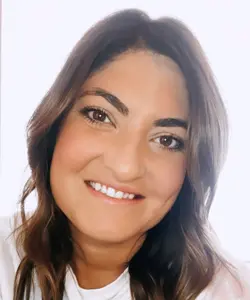Like a baby bird leaving its nest, life after inpatient rehabilitation for addiction might feel a bit awkward at first. Your new recovery feathers aren’t quite filled in, and there are many directions in which to fly. What reassures most people is knowing where “home” is, and at Canyon Vista Recovery Center, alumni coordinator Abby Lanesky fosters a program with great tools to help everyone build valuable, long-lasting connections of support.
Moving Past Uncertainty
Choosing an addiction treatment center is a valuable first step to wellness, but even when an individual commits to renew their health, it’s not always easy. Lanesky has multiple methods for establishing rapport with new people to create an initial sense of grounding.
“Unfortunately, it’s common for someone to be unsure or hesitant when seeking treatment, so it’s important to make them feel safe and remind them they’re in the right place,” she says. “It’s also essential to find out why they’re unsure or hesitant. Knowing this helps guide the approach and further conversations with individuals.”
The most effective recovery programs practice an integrated “whole person” approach, which means each individual’s continuum of care plan is designed for their specific needs, addressing not only the symptoms of addiction, but also the root causes, paving the way for healing the mind, body, and soul. At first, it’s often challenging for someone to see beyond today and into a promising future, especially when they’re struggling. Lanesky says meeting them in the moment with full support helps people put their sobriety choices into perspective.
“Often when someone seeks treatment, it’s because something in them said they needed help and can no longer do it themselves,” she explains. “However, that feeling can go away quickly when doubt, withdrawal, fear, and other factors set in, so I typically ask them to describe what the day before they came to treatment was like.” By remembering that and processing it in a safe, healthy environment, this helps draw a baseline to show people in recovery their path to continual progress and encourage them to proceed.
“This is a crawl–walk–run process,” Lanesky adds. “So, if we can clear the path of little things, hopefully this helps them feel more at ease, taking some of the stress and pressure off and allowing them to focus more on treatment.”
How a “Normie” Creates Alumni Connection
Clients at Canyon Vista refer to Lanesky as a “normie.” “I’m not in recovery, but I have family members who are both active in their recovery and active in their addiction, which have been driving forces for working in this field.” For more than a decade in behavioral health, her specialty has been chemical dependency and substance use disorders, helping people in residential treatment, hospitals, schools, and correctional facilities. She understands the power of alumni connection and strives to make sure people have the community structure they need to thrive.
“When I introduce myself and explain what the alumni program is and what it has to offer, the number one thing I tell clients is once they leave Canyon Vista, treatment doesn’t stop,” she explains. “The alumni program was designed to help support them throughout their recovery process.” She has an “open ear–open door policy,” making herself accessible by text or call whenever a former resident of the facility’s services needs a boost.
Additional Alumni Tools of Success
There are many robust components to the center’s alumni program, including monthly events to celebrate sober connections, and Wednesday and Saturday evening meetings. “This is when alumni come back for speaker meetings. Not only does this help build those connections between current alumni but it also builds connections between future alumni,” Lanesky says. “It shows current clients that recovery is possible, and the program works. Seeing someone achieve something that might seem unachievable at times is a really great motivator.”
Some alumni have even taken the time to write letters of support, viewable here, that address many of the common emotions people share when entering treatment.
Canyon Vista also offers the CaredFor app, which not only helps individuals stay in touch and provide a tether to people who understand, but also tracks sobriety achievements, offers recovery resources, and additional guidance from the Canyon Vista care team. Lanesky says when people post their successes or struggles, it’s a fun way to show what’s going on in life and be a part of the sober community, as well as ask for some extra support if necessary.
“There are many moving parts to recovery, and a successful alumni community is just one of those,” she adds. “But I stress to everyone that it’s important to stay connected and be active in the alumni program, as it has only beneficial things to offer.”
Find Comfort, Care, and Connection at Canyon Vista
“There are a lot of clichés in recovery, but they’re so true,” Lanesky says. “I often tell people that ‘sobriety isn’t bought: it’s rented—and rent is due every day’. Their rent includes the 12 Steps, sponsors, and meetings, as well as alumni connections and anything else that supports their recovery.”
Using a combination of clinical, holistic, medical, and psychiatric approaches, our compassionate professionals will help you fly into a new life with confidence and never-ending support. Now is the time to get the help you need with a community you can trust. Call us today.





